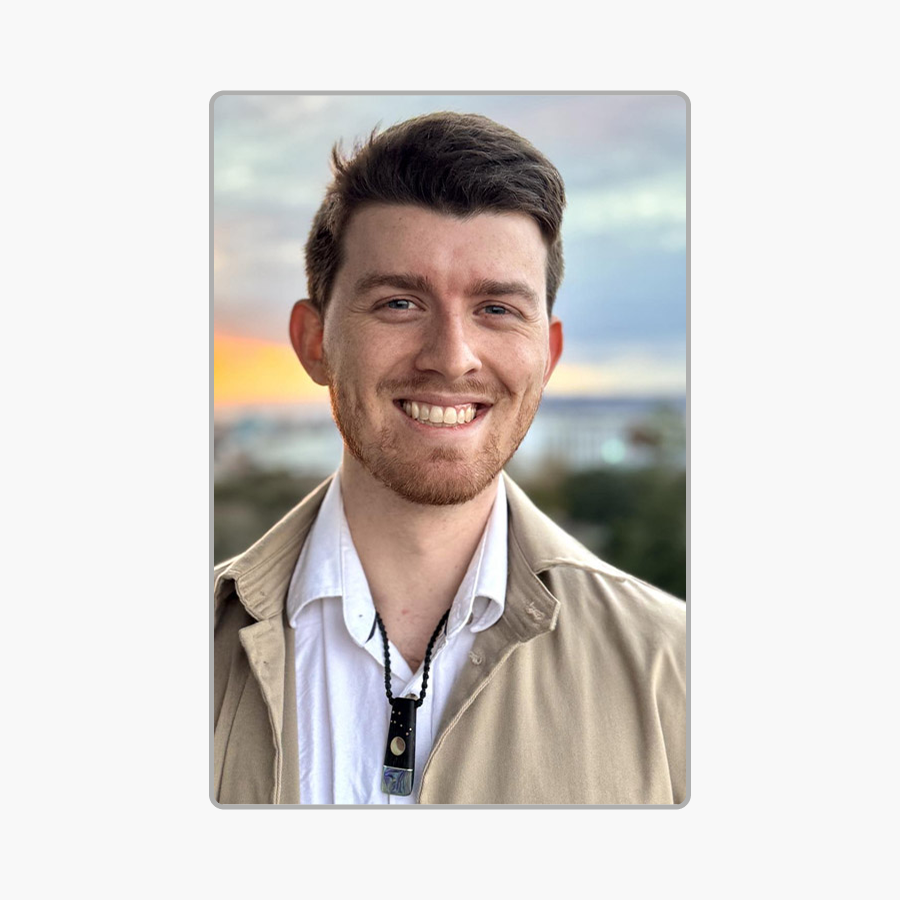Disclaimer
The information on this page has been provided by the candidates. It does not reflect the views or positions of Auckland Council.

Candidate for Waitematā Local Board
As a child, I looked forward to any chance I had to visit the city, to soak up the hustle and bustle and escape the placid atmosphere of West Auckland. This fascination stuck with me through my undergraduate years, as walking up Queen Street became part of my daily routine. Yet, ten years on, as I have come to call Grafton home, I find the city’s charm has slowly eroded, replaced by a ghost of its former self. While I don’t claim to have all the answers to the city’s conundrums, I’m standing for the Waitematā Local Board to be part of the solution. Having nearly completed my PhD in community development and spent the last four years teaching over 800 university students, I am confident that I can represent the close to 10,000 students who live in the city centre, while also bringing a fresh perspective to the board.
The decline of local communities is one of our most significant and overlooked challenges. In the city centre, only one in five residents feels there is a sense of community. Yet, seven in ten say community is important to them. In line with the recent trend of "Back to Basics", if I am elected, I will see the board refocus its attention on the most basic facet of any city or community — its people. Without people, a city is but an empty husk, an ensemble of bricks and concrete.
I am a PhD candidate specialising in community development. My research has seen me travel across both Japan and Aotearoa New Zealand, interviewing numerous local volunteers, elected officials, and council staff. I am an experienced teacher, having taught Japanese language, academic writing, research, and critical thinking to over 800 tertiary students. Finally, as a member of Coastguard Titirangi and The Rotary Club of Auckland, I am a strong proponent of volunteering and community engagement.
Research, Relevance, and Presence. These are the three areas the local board must tackle to play a meaningful role in the lives of Waitematā residents. We need to understand the experiences and needs of residents. We need to find ways for people to pursue their interests locally and with others. Finally, the board needs to proactively go out and meet people where they are at, instead of expecting people to come to them. This would ensure the board is more relatable, accountable and responsive.
I am a big fan of walking, and it would seem many people living here agree. In 2023, around 26% of all Waitematā residents were students. These students overwhelmingly (48.9%) walk to school or university. A large portion of workers also walk (24.5%). Moreover, when asked their main reasons for living in the city centre, 46% of residents responded, "So I don't need a car". I believe Waitematā should strive to be easily walkable, while retaining accessible public transport and efficient roads.
I know nothing about water beyond the stuff I drink. In my close to 28 years of life, I have never once intentionally thought about Auckland's water system, and I would take a bet that this is the same for nearly everyone my age. Decisions on water should respond to immediate needs where possible, while also ensuring long-term solutions are pursued. These decisions, however, should ideally be informed by experts and those working within this field.
In 2024, one-third of Auckland residents felt that their local area had become worse. One third! This is compared to just 15% who felt their local area had improved. We clearly are doing something wrong. Tackling this issue requires the council to invest more in social research. We need to go and speak to residents, learn from their experience, and apply bottom-up solutions to Auckland's urban development and infrastructure woes. Let locals have more say over their local areas!
In 2024, 30% of Auckland residents felt that their quality of life had decreased. This is a tad worrying. One of the largest reasons for this decline was a reduction in well-being. While the council has limited levers to address this issue, it can invest in natural spaces and parks. Although not always a popular investment, research consistently shows that more trees and plants improve mental health.
Nearly every measure of community within Auckland has declined in the past decade. People are less likely to experience a sense of community, less likely to participate in social groups, less likely to trust each other, and more likely to be lonely. We can no longer afford to take community for granted as a given. The council must invest in creating opportunities for people to engage locally and with others. We also need more community facilities and more local entertainment.
Like water, I know little about economic growth or cultural development. But what I do know is that people are unlikely to invest in places they do not feel connected to. Supporting local business and promoting cultural heritage starts with people. If I don't enjoy where I live (or have a poor quality of living), I'm less likely to spend money, volunteer, or engage in cultural events and activities. Investing in business and culture should come hand in hand with investing in people.
Regarding outcomes for Māori, one statistic demands improvement – voter turnout in local elections. In 2022, just 25% of Māori voted in Auckland, compared to 37% of non-Māori. The more Māori voices engaged with local government, the better equipped we will be to deliver meaningful outcomes for Māori.
These links to external websites have been provided by the candidates. The content on these websites does not reflect the views or positions of Auckland Council.
The information on this page has been provided by the candidates. It does not reflect the views or positions of Auckland Council.